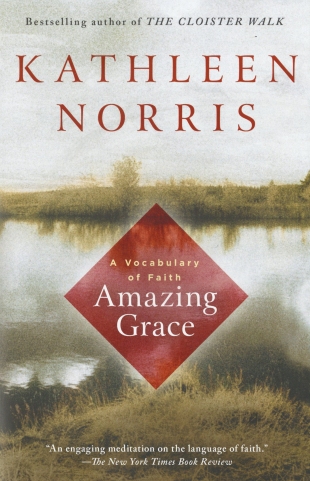"If God did not choose to work in ways that confound us, grace would not be amazing. It would not be grace," writes Kathleen Norris, poet and author of the bestselling The Cloister Walk. She reclaimed her Christian faith in the 1980s after 20 years away. In this idiosyncratic lexicon of faith, Norris examines some of the most daunting and loaded Christian terms including dogma, blood, Antichrist, repentance, salvation, hell, and revelation.
This combination memoir, theological tract, cultural commentary, and etymological study grows out of her love of worship, which was nurtured in Benedictine monasteries and in a small-town Presbyterian church where she has often served as preacher. Norris celebrates this communal experience as "a kind of living poem" which bears fruit and meaning in charitable acts of service. With a faith centered in worship, she sees prayer as mystery, hymns as icons, and forbearance as an essential Christian virtue.
Norris offers a Protestant critique of the literalism of fundamentalism, the ethereal nature of New Age philosophy, and the problem of free thinkers "who take pride in being beyond any need for God." Some of the finest moments in Amazing Grace are when the author defends imagination within the Christian community.
